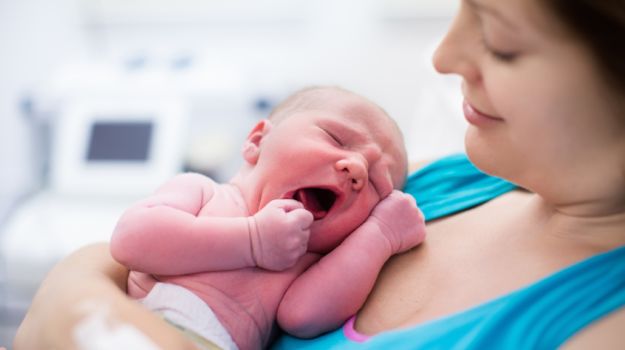The study shows that infants are not discriminatory towards people but only develop biases when they cross the first year of their lives

Babies don't have any hatred for anyone around them
HIGHLIGHTS
- Babies develop biases only after the first year of their lives
- They usually prefer native speakers
- 456 newborns between the ages of 8 to 16 months were involved
Babies are surely one of the most beautiful creations of nature and adding to this, a recent study has found that infants don't discriminate, but tend to like everyone they see around. They may have a certain preference for people who speak in their language though. The findings also suggest that while newborn's positivism toward familiar groups may be innate, dislike for unfamiliar faces develops at a later stage. When the babies gain full consciousness by the age of one, they tends to prefer people who speak in the mother tongue and tend to develop an indifference with the person who talks to them in a language they aren't familiar with.
The lead researcher of the study, Anthea Pun from the University of British Columbia in Canada said that persistent discrimination and conflict across different cultures have led to the question "whether the newborns are naturally inclined to like people who are similar to ourselves and to dislike those who are different or whether we are taught to feel this way."
Contributing to the ongoing debates on inherent biasness in humans, she said- "These findings suggest both are true: liking people who are similar to ourselves seems to be an innate bias, but disliking those who are different is something we likely learn later".
The Study
The study conducted by the UBC researchers aimed at determining the age when biases first emerge. For that, they carried out six experiments involving 456 newborns between the ages of eight and 16 months at Science World's Living Lab located in Vancouver.
The series of experiments studies how quickly infants habituate to either familiar or unfamiliar language speakers performing pro-social behavior or antisocial behavior.
This Habituation process measures infants' rate of processing pictures and sounds presented to them.
Also Read Health Information on Jaundice in new-born babies
What causes the bias then?
The researchers found that, as the infants turn a year old, they not only begin to think of speakers of their native language as good, but also expect them to be nice and pro-social. The infants showed signs of surprise when they observed speakers of their native language engaging in anti-social behavior.
Infants of this age do not have any kind of positive or negative expectations of speakers of an unfamiliar language, suggesting that negativity toward different groups or cultures is likely learned after the first year of life.
This new research disproves the previous research which had shown that child exhibit discriminatory nature after the age of three.
(With inputs from ANI)
DoctorNDTV is the one stop site for all your health needs providing the most credible health information, health news and tips with expert advice on healthy living, diet plans, informative videos etc. You can get the most relevant and accurate info you need about health problems like diabetes, cancer, pregnancy, HIV and AIDS, weight loss and many other lifestyle diseases. We have a panel of over 350 experts who help us develop content by giving their valuable inputs and bringing to us the latest in the world of healthcare.














